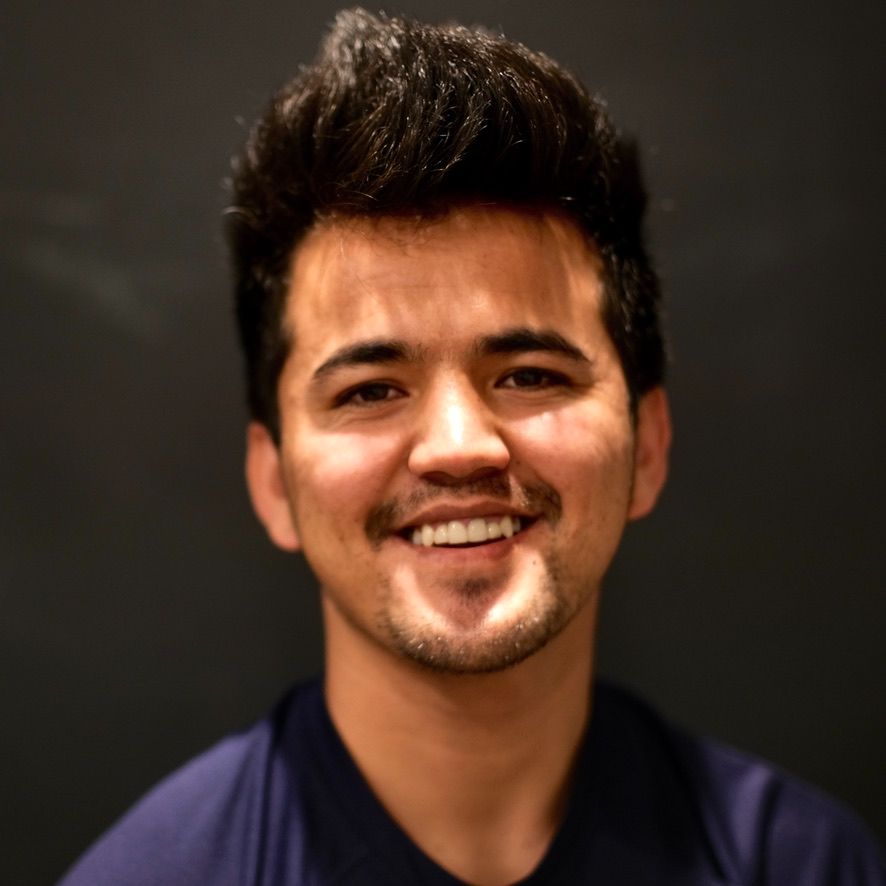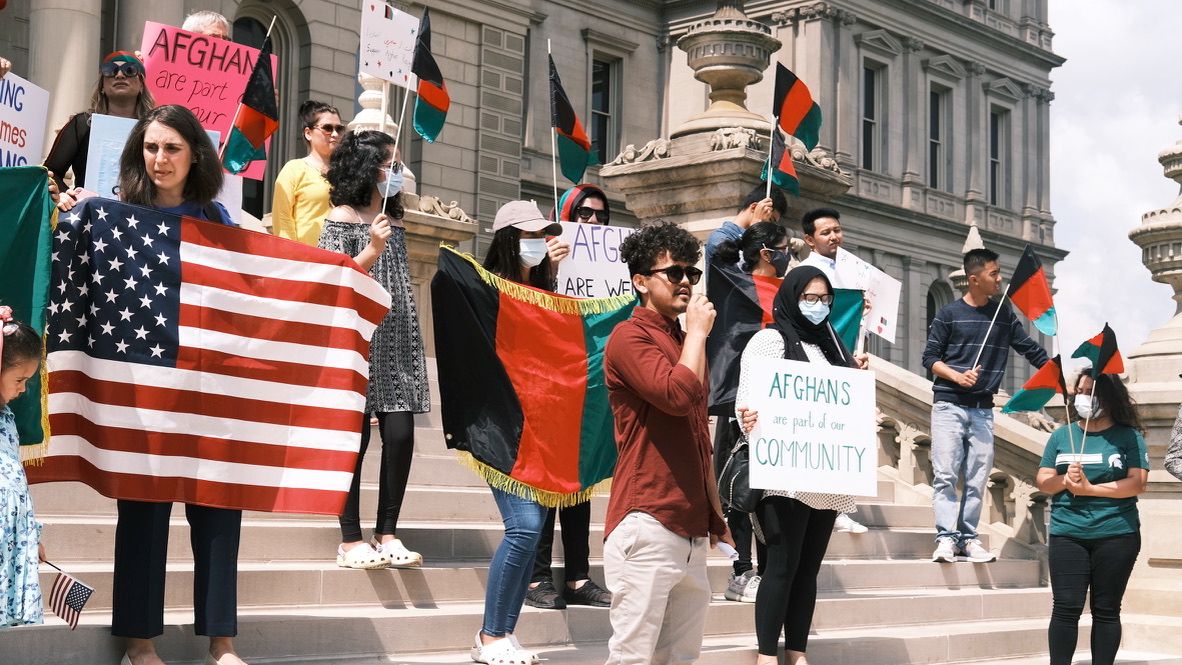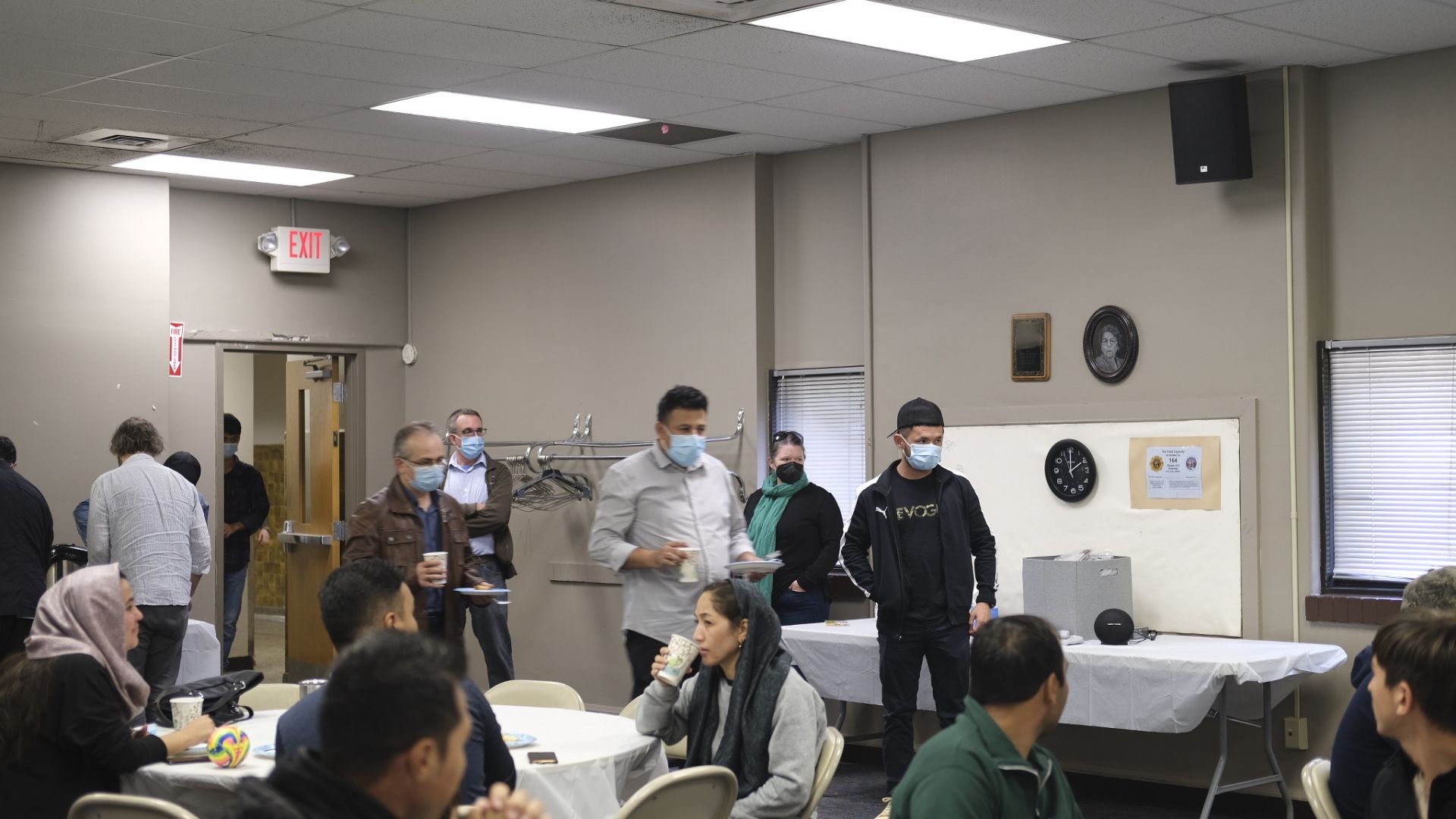Yusuf Sultani • President, Afghan Association of of Michigan

Shortly before the Taliban took over Afghanistan in the summer of 2021, Yusuf Sultani felt a lack of unity among Afghan refugees in Lansing. Together with a small group of local Afghans, he founded the Afghan Association of Michigan. Amidst the crisis, the association works to welcome new arrivals, strengthen the Afghan community and preserve and celebrate the Afghan culture. The lasting impact Sultani has made in the Afghan community captures the essence of the Glen L. Taggart Award for Community Contributions.
After spending years in an Indonesian refugee camp, Sultani arrived in the U.S. in 2016. As founder and president of the Afghan Association of Michigan, he has been instrumental in educating the Lansing community about Afghan refugees, raising funds and collecting donations to aid in their resettlement, and mobilizing the local Afghan population to welcome and support these incoming refugees.
Sultani’s leadership, organization and networking efforts are wide-ranging. He organized the local Afghan community for a rally at the Capitol, engaging local media to amplify news about Afghan culture and the resettlement process. He produced a documentary about Afghans in Lansing to help recruit and acclimate refugees to the community. He’s recruited Afghan volunteers to act as interpreters and to welcome and pick up incoming refugees at the airport. In partnership with local veterans and the Refugee Development Center, he helped raise nearly $30,000 to support resettlement efforts. He has worked with local faith groups, partnered with the Immigrant and Refugee Resource Collaborative—and over countless cups of tea, he has sat with hundreds of scared, lonely, bewildered people to offer them welcome, comfort and hope.
Originally from Afghanistan, Sultani is currently a junior at Western Michigan University, pursuing a degree in film, where he is a scholar in the Seita Scholars Program.
I came to the United States in 2016 and stayed in a group home through Samaritas and Lutheran Immigration and Refugee Service. At the time, I felt a divided connection between the Afghan community who had already been here—it felt really isolating. There was no sort of community where we could celebrate the Afghan culture, or come together, or respond to someone in need. This was all missing. So I felt a kind of responsibility to break that—it felt sort of like a curse that everybody was divided.
My thought was that we are all human—we're all from the same country. We share valuable things in our culture, we share the same religion, we share the same language—these are the most important things that we need to consider when we're moving to a new country. And because that country has its own values, culture, language, there needs to be a way to preserve our own culture, ethnicity, hospitality and language. Coming together as Afghans and accepting each other as human beings is what motivated me to create the association.
There were only five of us at the start. We had some help getting things together and had our first event as an association in June of 2021. People were happy to come together. Then the chaos started in Afghanistan—it was tragic. I had family there myself and there were people coming to Lansing. Our mission calls us to help new arrivals, to strengthen our community, and to celebrate and preserve Afghan culture. So that’s what we did, focusing on new arrivals first. We built a community where everyone is welcome.

If they feel that we are helping them as a community, not as an employee that was hired by a group of people to help them out. I want them to see we are helping voluntarily, that we’re from their own people and are here to help them be a part of this community. I hope they know we are working really hard to make this a great community for them.
We have heard that some of our community members are frustrated and feel like the association is not helping them. Which is hard when we don’t have a lot of volunteers.
But there is also a large group of people who really like to get together to celebrate and connect with their culture. Last year we had a tea event to introduce the old community with the new arrivals—and they loved it! They built new relationships by chatting, sharing things and connecting over social media.
The event helped lift a lot off of the pressure on our small group of association leadership. Ten of us were helping more than 100 people at a time. But when they came together, the existing community stepped up, visiting with the new arrivals and inviting them to their own homes. It was really amazing to see how the community started helping each other, especially as they were all carrying their own traumas. I just hope they feel supported.
In Afghan culture, people have tea parties—a lot. They invite their neighbors or relatives to their homes—they make a variety of teas and chat, sharing both exciting and difficult moments in their lives. Sometimes it feels like a form of therapy.
So the tea party in the U.S. was a way to start to fill even a little bit of that need, helping the Afghan people feel more connected to their culture. It didn’t hurt that there were cakes, cookies, nuts and dried fruit, too! We had them switch tables at regular intervals to get to know even more new people.
I felt really good. I feel like we all have this invisible connection with each other, so when you see your people get together and share an exciting moment—it was just joyful. When you have gone through so much, being able to express those emotions or connect with your culture again is really meaningful.
Most of the Afghans are hard-working families and will do anything to provide for their families. One of the biggest visions I have is for everyone to have their own homes. They could also transfer their knowledge in so many things—restaurants, aviation, medical care, and so on—into a job.
Many of their children are already enrolled in school. So in five years, I see the young generation coming together and forming something for their community, possibly educating their parents about American culture or technology.
I hope they also are able to start a business in the community, where they can provide some goods for new arrivals, the Afghan community as well as the expanded community.

Most of the people I come across are accepting of new arrivals, but there are groups of people who do not. I’d like those people to remember that a refugee is just another human being. They’ve been forced to leave their country, after living a good life in Afghanistan. What they bring to this community has value.
I’d also say it’s important to not make assumptions. If you don’t know something, just ask. Remember that they're here to start a new life and we are their neighbors. As a neighbor we can be welcoming and open to new ideas. You’ll probably be invited over for a cup of tea.
I’ve learned that at the end of the day, you can only do so much for people. It’s their decision because it’s their life. As a leader, you’re here to guide them and provide resources. I’ve also learned that some people might not be happy with what you’re doing, but you need to follow your goal and the path that it leads you.
I brought a lot. The most important things are my language and my culture. I also brought some of the food I enjoy—kabuli palaw, biryani, qormah and kalah pacha.
I realized as I was getting involved in my education that I was forgetting my language. I felt really sad about that and needed to find a way to build that broken part back up. One of the most important things we have is language—communicating with our community through poems or stories is a way to express yourself. If you want to express who you truly are or what the thoughts are in your head, you say or write it in your language. I think this is meaningful and valuable.
This missing part was one of the reasons I created the foundation. I wanted and needed to talk and share with others in our language. My vision is that this becomes part of the association—forming a weekend school where kids can learn Farsi and be immersed in the culture of language.
I think it's just my personality to want to help others—especially my people because I have left my country and my family behind due to conflict. They’ve experienced the same thing and I'm here to support them and to build a community where they're welcome. I do this because I don’t want them to experience the loneliness and disconnection and division I felt. I want them to experience the unity of a community where everybody is involved.
We focused our work in the Lansing area to start with. But slowly we’re able to expand around the state and into other states, helping others start their own associations. We also plan to bring more programs in the community where people can learn about and celebrate their culture and where they can help others.
Nominated by: Jeremy Herliczek, Michigan refugee advocate and volunteer, M.A. (2005) and B.A. (1996), School of Journalism, College of Communication Arts & Sciences
The Glen L. Taggart Award for Community Contributions to International Understanding is given to one or more citizens of the state of Michigan who have made a distinct and sustained contribution to international understanding in their respective communities or in the state at large. The aim of the award is to extend public recognition to people not employed by MSU who give their time, energy, and imagination to the work of promoting knowledge of and concern for all the peoples of the world.